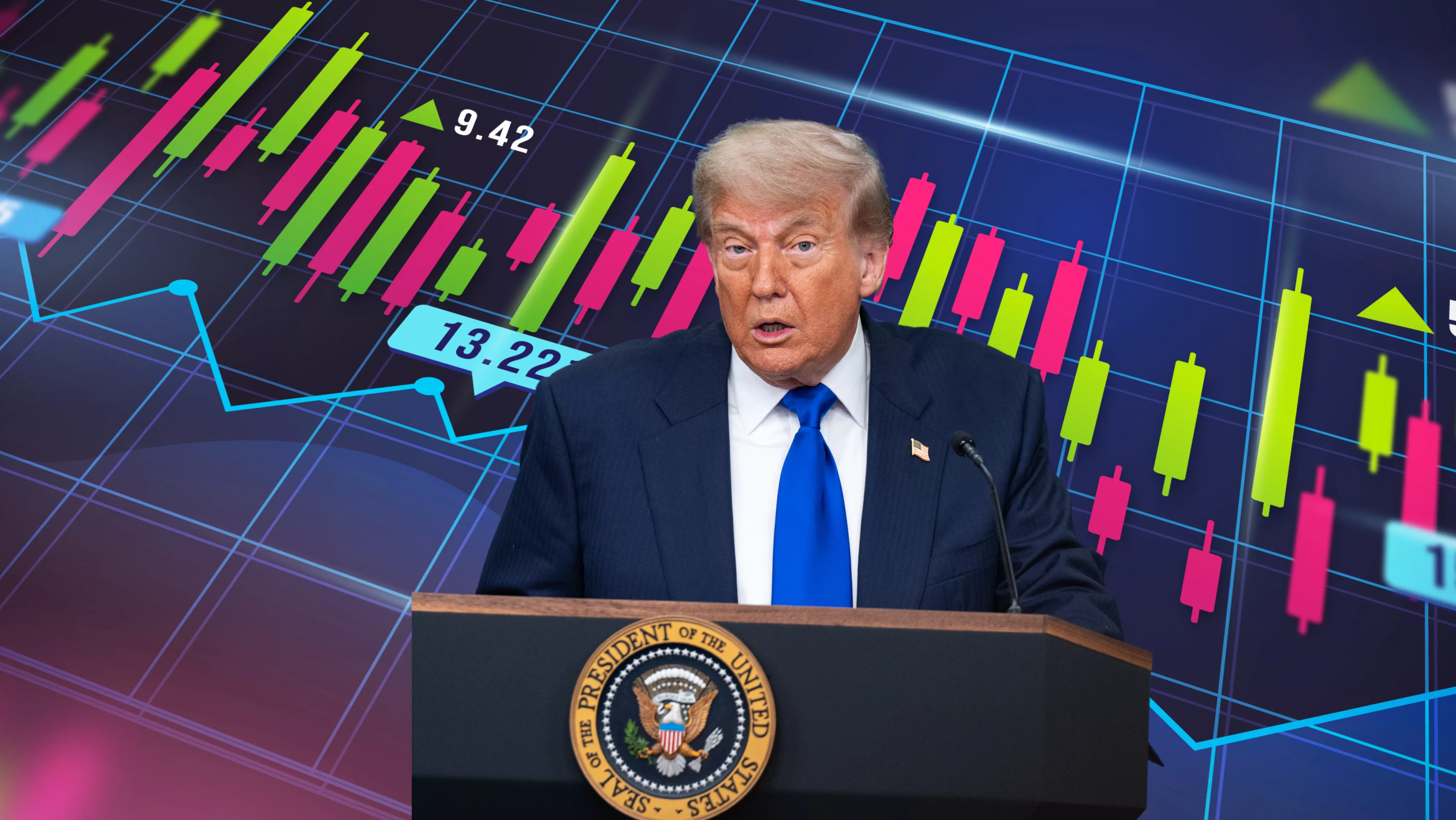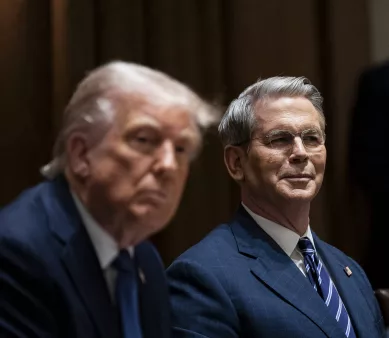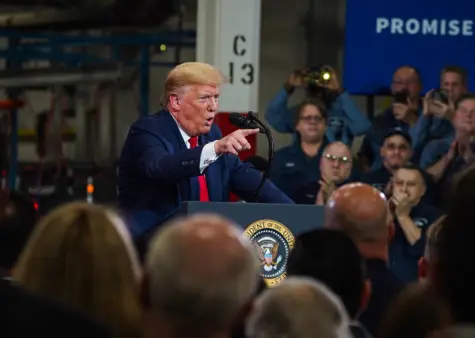
Image by pikisuperstar on Freepik + Photo by Annabelle Gordon/ © Sipa USA
(New York, NY) – It feels like just yesterday. I had begun hosting overnight programs at 77 WABC, filling in for Frank Morano, while he pursued elected office. And — trying to navigate the airwaves and somewhat fill his shoes — the other one was dropping concerning the stock market, and tariffs, and an issue that threatened to derail Trump 2.0 just weeks into his term.
Everyone was freaking out about tariffs. It was sort of the ultimate canary in the coal mine before the most recent Iran-Israel MAGA freakout. Did you support Trump’s tariffs? It wasn’t some blind loyalty test. It was a question that cut to the heart of the America-first, populist movement. Were you more likely to support the investor class, or Main Street? Does the job market’s realities outweigh the stock market’s numbers? Or, more plainly — is the stock market actually going to tank amid the push for truly free trade?
NY GOP Chairman Ed Cox discusses the economic impact of tariffs:
Just months ago the answer was apparent. Many on the left and the right would tell you Trump was going to wreck things. The economy was going to hit the skids. A recession was coming. And yet now the S&P 500 has recovered what it lost when the initial tariff shock had hit. Economists including Torsten Sløk, chief economist at investment giant Apollo Global Management, are admitting they were wrong. Jim Cramer, who insisted a recession was coming, continues to fade from prominence.
It’s interesting to look back at Trump’s first term. Back then, the idea of instituting tariffs was more theoretical. For decades, Trump had raised the idea — saying America’s trading partners were taking advantage of us, and manipulating things like trade imbalances and currency exchanges. Yet no Republicans (or Democrats) had seriously pursued tariffs as a potential measure. Almost all economists argued they would be inflationary, and as simple in their outcome as in execution. A president imposes tariffs, and companies would pass that on to consumers, and prices rise — wash, rinse, repeat. But the problem with that was how it ignored reality: the American consumer is the world’s consumer. And the customer is almost always right.


On Friday, as June drew to a close, Trump announced a trade deal with China was coming. In many ways, the tariff dance was aimed at China — with the goal of achieving free trade with other partners. Investors and people on Main Street alike all now realize the tariff response was very chicken little. Warren Buffet showed his true, partisan nature by openly criticizing Trump about their use — despite his never showing much concern for the rise of globalism and how it harmed the average American.
That same day, Trump blasted Canada — our neighbor to the north and ongoing trade antagonist — for their plans to impose a digital services tax on American companies. He called it a blatant and direct attack on America and intimated that corresponding action would be taken. By Monday, Canada had called the tax off.
In response to the New York Post’s reporting on Sløk, the economist, and his begrudging acknowledgement, White House spokesperson Kush Desai offered an email. “President Trump was right all along? Many such cases!”
All the while, the White House is in talks with 18 nations — including the European Union. India, Vietnam, and Malaysia are also involved in negotiations. Progress has been made, including with the UK, Vietnam, and India. Trump is continuing to draw a hardline as well, saying the US will soon send tariff rates to nations if no deal is reached.


“Dear Mr. Japan: Here’s the story,” Trump said on social media. “You’re going to pay a 25% tariff on your cars.” He added the US continues to face unfair trade conditions, with American consumers buying “millions and millions” of Japanese cars — minus reciprocal levels of trade.
Typically, rather than taking note of the shrewd negotiating skills (see: the Art of the Deal), many with Trump Derangement Syndrome are focused on the use of the cheeky “Mr. Japan.” How utterly unsurprising. About as unsurprising as the initial tariff freakout — and the lack of any grace of credit being thrown Trump’s way now.
Yet, remember Trump’s position in early January: “My message to every business in the world is very simple: Come make your product in America, and we will give you among the lowest taxes of any nation on Earth.”
The ultimate MAGA position — America first — with low taxes, high growth, and renewed hope.














